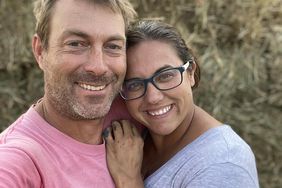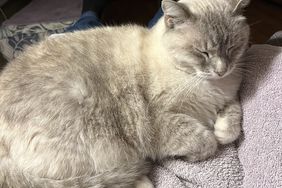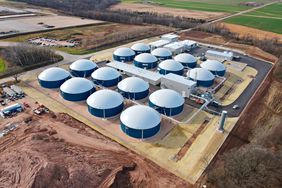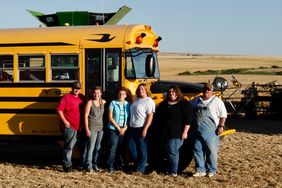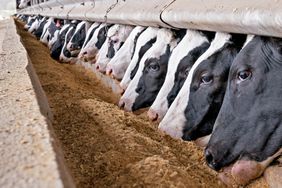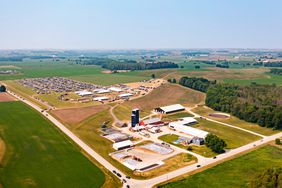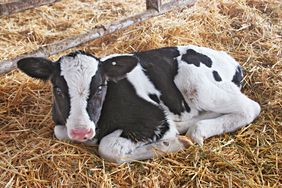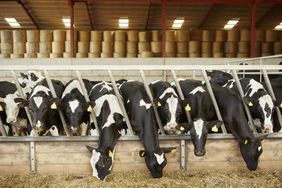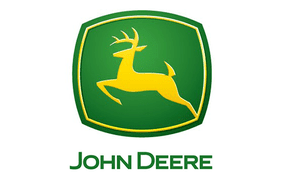:max_bytes(150000):strip_icc()/TDF20Book20Cover207-f39614f8a5c94ee1a4bc5a9daa3d4cfb.png)
Derrick Josi's face might look familiar. He's easy to find on social media and has been a featured guest on news programs and podcasts around the county. More than 700,000 people subscribe to TDF Honest Farming's content across Facebook, Twitter, Instagram, and YouTube. Josi recently found another way to share his story as an Oregon dairy farmer by publishing An Industry Worth Fighting For.
As his new book was rising on Amazon's New Release chart, Josi sat down with Successful Farming to share his journey to becoming an author.
SF: How do you introduce yourself?
DJ: I'm a fourth-generation dairy farmer in Tillamook, Oregon. I share my life online – the good, the not so pretty, and the entertaining.
SF: You're no stranger to sharing your story. Why was writing a book the next step for you?
DJ: There is an entire demographic yearning for more information than they can find in :30- to 3:00-minute segments on social media. This book is for anyone who wants to learn more about dairy farming and agriculture from someone who actually farms instead of someone with an opinion who has never stepped foot on a farm.
Writing this book was the natural next step in continuing to advocate for the agricultural industry by creating a long-form, fact-checked, educational source for those who are ready to digest more information. While I don't pretend to be the end-all for knowledge in agriculture, I'm definitely out there fighting for our industry.
SF: This is a different audience than your social media, so who did you write this book for?
DJ: I'm hoping anybody who has questions on agriculture, and dairy in particular, is picking up the book. I do talk about a lot of hot-button topics – things we act like people don't want to know.
SF: How do you reach those curious people and get outside the echo chamber of the agriculture industry?
DJ: I didn't step into an advocacy role with the goal of teaching 'consumers' or 'the urbanites.' I treat everyone as people who are just like me and am always open for transparent, honest conversations. We all have something we can teach someone, but if we come across as just trying to lecture, or proving 'them' wrong, that's not good for anyone. No one likes to be lectured or told they're wrong.
I try everyday to connect with people who are just trying to do their best. I have a family, I have kids. I'm just trying to do what's right for them. That's a long-winded way of saying, I just try to connect with people the same regardless of their background.
:max_bytes(150000):strip_icc()/JPGBook20Cover-An20Industry20Worth20Fighting20For-2000-5786bdd737f641bab8e18d6bf6748367.jpg)
SF: Your book was just released. What sort of feedback are you getting?
DJ: I've had nothing but positive feedback. You always worry, are they just being nice? But, some people I trust who are in the ag outreach community have read it. One of them said he's not an avid reader and he couldn't put the book down. That makes me very happy. I think Steve and I did a good job of telling the story without boring people.
SF: What did you learn about yourself through this process of writing a book?
DJ: I learned that having a good editor is worth its weight in gold. We hired a lady to go through every single one of the claims that I make in the book and find the article or study backing it up. All that is linked in the Kindle edition. It's going to be a great resource, but I wouldn't have had the time in my day to do all that.
Ironically, she was like, 'Derrick, you say that Tillamook is a mecca of dairy. I can't find anything that validates that claim.' I was like, that was tongue in cheek. What I was saying there, it's not actually a fact. So, she did a really good job.
SF: Start to finish, how long did writing a book take? Had you been thinking of doing a book for a long time?
DJ: It's been an idea in my head to do something like this for a while. Then I did Steve's podcast, The Commute, for the second time. Out of the blue a couple days later he texted me and said, 'Don't think I'm crazy, but I really think you have a book that could be written.' I texted him back that I've thought that, too. That's when he was like, 'I do this for people.'
He and I spent a month of three times a week on the phone for probably an hour to an hour and a half, just talking. He recorded it, and then put the words to paper.
We decided to do it in early March, and we launched in mid-October. It was a process, but once the initial book was done, all I had to do was read what he'd written and make sure it still sounded like me. I had to make sure I wasn't going to anger family or anything like that. It was about a seven-month project.
SF: What have been good resources for you as you've gotten more comfortable with sharing your story?
DJ: I always have to plug Don Schindler from DMI. He was the one who was initially poking me to start doing it. He's become a very good friend. There are numerous mornings that I've called him before he goes to work just to pick his brain or rant because I'm frustrated. He's always been amazing. I don't know how he does it, because I know he does it for 100 or 200 other dairy farmers who do the exact same thing I do. His dedication is amazing.
My local Oregon Dairy Nutrition Council has been phenomenal since day one. Anytime I have questions, I reach out to them, and they have a resource for me and get it to me right away.
SF: I've seen your book on Amazon. Is that how you're distributing it?
DJ: Primarily on Amazon, just because that's so much easier. You kind of have to go through a publishing company to get into all the mom-and-pop bookstores. They're more complicated. I would like to stop in at Powell bookstores in Portland and get my book in there, but that would just be me personally going and doing that. And I'd like to get my book in the Tillamook Visitor's Center.
SF: The activists who attack dairy get especially personal and nasty. I know your book addresses some of the facts, but as a human being, how do you deal with them talking about your family and livelihood?
DJ: It's definitely a balancing act. For a while there, it was off kilter. It is hard when they're saying horrible things to your wife, finding her private social media, trying to get her riled up.
I believe the dairy industry is sometimes easier to attack, simply because we're the low-hanging fruit.
They believe they can sway more people to their way of thinking if they can knock out the dairy industry, which would become a notch in their belt before continuing to their next target.
Activists try to get vegetarians to take the next step, and they're shocked when a dairy cow ends up as a hamburger; whereas most of us are like, that's how it works. Cow, calf separation is a really easy way to make people feel something. 'That poor mama cow and calf, separated, crying for days' – it's a great story, but it's just not true.
:max_bytes(150000):strip_icc()/Derrick20Josi20-2000-2746cb56c8d94d5eaad7c038cfb0823a.jpg)
SF: When they attack, do you check out of your online accounts, or have you surrounded yourself with a support system? How do you handle that?
DJ: A lot of times, I don't even go into the comments anymore because I get thousands of comments every day. So, a lot of times I don't even see it. But, I've built a community around myself. There are people who aren't in agriculture that follow me that are almost more vicious than the animal rights activists. They come to my defense.
I don't get a whole lot of attacks anymore because I feel like the activists are used to being able to swarm somebody and make them feel alone. Now, they try and do that and all of a sudden they get swarmed by an even larger group of people.
In the beginning when you start doing what I do, everybody goes through that time when you feel alone, you feel vulnerable, you're being attacked. They attack your character. They're vile humans, there's no way around it.
I've found just one comment from TDF on someone else's post, if they're getting swarmed, that comment shows up to anybody that follows me. Then all the sudden the swarm goes to their page to help. I've done that a couple of times. It's just nice to know that somebody is looking out for you, especially if you're just starting out, and you have people show up like, 'Leave them alone.'
SF: Farming is a demanding job as it is. How do you manage your time to do all you need to as a farmer and create content?
DJ: I'm not going to say that I've always been perfect. My wife would definitely tell you that's not the case. In the beginning, when I was building my platform, I spent way too much time online. But all of us have those 10 to 15 minutes here and there as farmers. For me, it's when my TMR [total mixed ration] is mixing. It mixes for 10 minutes. All I'm doing is staring at feed mix. I've got 10 minutes right there where I could be advocating online or reading comments.
There was an hour in the morning between when was doing a load of feed and when I had to do my mix. That's when I found the time to be on the phone for the book. It's just about time management. I've gotten to the point now where I'm fairly good about putting my phone down.
I was sitting at an airport in Minnesota after having done a talk for Farm Bureau or something, and my daughter was having her first outing to a playground. I was watching her go down the slide for the first time on my phone instead of being there. I sat in the airport for six hours waiting for my flight thinking, maybe this isn't the right time in my life to be going out speaking. I need to focus on family and kids right now. I don't want to miss out on that stuff just for social media. It was kind of a light bulb moment. But it was a process getting to that.
SF: Is there advice or anything about your experience that you want your peers to know?
DJ: We are a community. It's OK to not want to do what I do online because it takes a unique person to put up with all this. And that's perfectly OK not to do it. There are different avenues. There are so many different ways to be involved in farming. You don't have to do it the same way everybody else is.
:max_bytes(150000):strip_icc()/NatalinaBausch-6-06b14ffcaa32491e802c91c09e7fc867.jpg)


